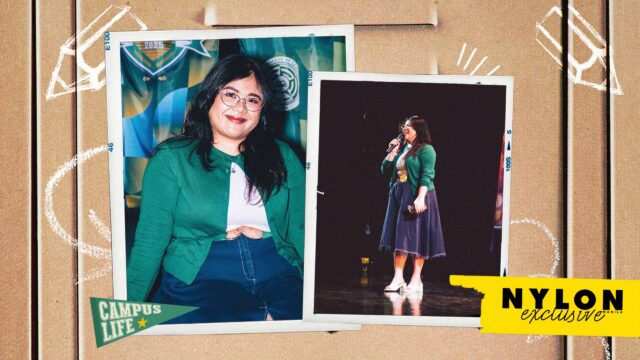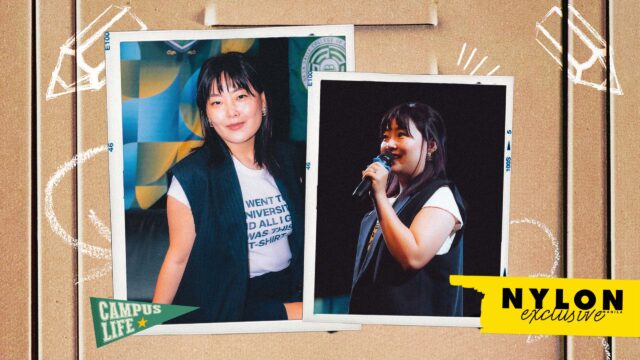And while these challenges feel especially heavy in your 20s, they’re a part of life at any age—a reminder that growth often comes through the mess, and healing reveals itself in its own time.
Related: 9 Lessons On Love, Loss, And Growth From Bar Boys: A New Musical
Life in your 20s is a beautiful mess. You’re swimming in uncharted waters, drowning in dreams that feel impossible and heartaches that seem insurmountable. The uncertainty comes in waves: Will I ever heal? Will I ever be whole? But here’s the truth: the stumbles, the unknowns, and even the unanswered questions are all part of the ~plot~.
That’s the premise behind Tiny Beautiful Things, a story born from Cheryl Strayed’s raw and deeply personal advice column, Dear Sugar. From a bestselling book to a Hulu series, it now comes alive on stage, reminding us that life’s tiny moments can carry the biggest lessons.
Running until December 8, 2024, The Sandbox Collective brings Tiny Beautiful Things: A Play About Life – In Letters to Manila, closing its 10th anniversary season with an emotional powerhouse of a production.
Led by award-winning actress Iza Calzado as Sugar, the play dives into lived experiences, brought to life by Rody Vera, Ketchup Eusebio, and Gabby Padilla. Set against the Power Mac Center Spotlight Black Box Theater, this adaptation personifies the struggles, triumphs, and everything in between that make us human.
Be brave enough to break your own heart.
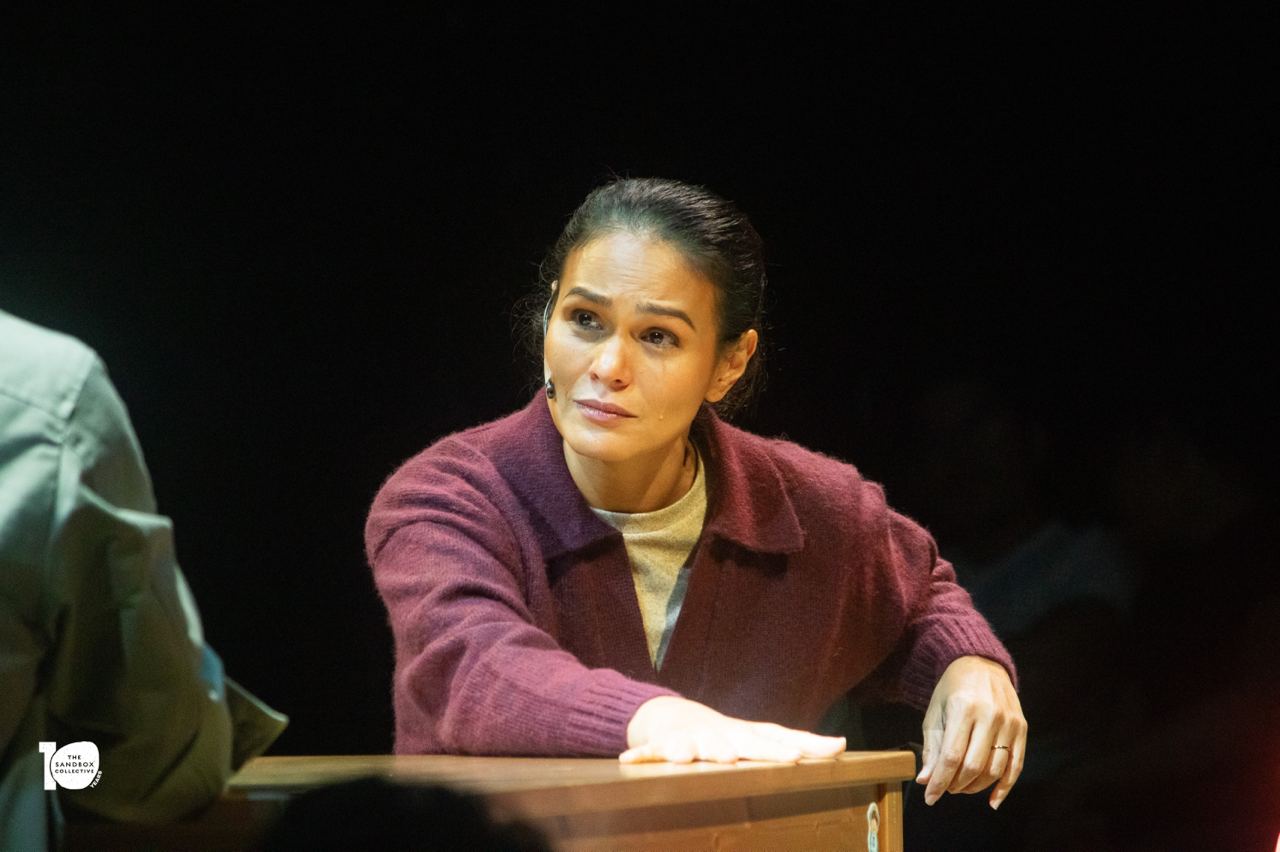
Be brave enough to break your own heart. That’s what we often forget when we’re tangled up in relationships, whether it’s with another person or a part of ourselves we once believed in. It’s easy to get stuck in the idea that love—whether it’s romantic, professional, or personal—should always be fought for. But sometimes, the most honest thing you can do is walk away, even when everything in you is screaming to stay.
“You are not a terrible person for wanting to break up with someone you love,” Sugar reminds us. Wanting to leave doesn’t mean they’re terrible or toxic; it simply means the relationship is no longer serving you. It may not always make sense in the moment—whether it’s walking away from a relationship that once felt like home or leaving a career that once lit you up. But in the end, remember: Wanting to leave is enough.
Forgive for yourself.

Forgiveness is a strange thing. It’s not about pretending the pain never happened, it’s about releasing yourself from a past you can’t change. Maybe you’ve distanced yourself from those who’ve hurt you—new lives, new beginnings—but there’s an invisible heaviness you carry without even realizing it.
Forgiveness doesn’t mean you have to forget; it means you choose to stop letting their choices dictate your peace. Forgive for yourself, not because they deserve it, but because you deserve the freedom to heal.
Grief isn’t something you move on from.

They say there are five stages of grief, but Tiny Beautiful Things taught us that the process isn’t about moving on—it’s about learning to live with the absence. Sugar’s conversation with Living Dead Dad highlights this truth so beautifully: The person you once loved, who’s now gone, will always leave a hole in your heart. That’s not something you try to fix or fill. It’s a presence you make room for, an ache that becomes a part of who you are.
Grief, in a strange way, becomes your new home—a reminder of love lost, but also of how deeply you were able to feel. It’s not about letting go, but about learning to carry it in a way that allows you to move forward, slowly but surely.
Healing happens with those who understand.

Healing becomes a lot harder when you’re surrounded by people who say they’re there, but you can feel the disconnect between their words and actions. They tell you to take your time, but somewhere along the way, you start to sense that they’re moving on without you. You begin to feel like an outsider in your own life, wondering why everyone else seems to be thriving while you’re still standing in the same place, trying to piece yourself back together.
In those moments, Sugar’s advice hits home: you need to surround yourself with people who have been through the same pain, who truly understand the weight of what you’re carrying because they’ve carried it too. These are the people who will help you heal—not with empty words, but by simply being there, sharing the space of your grief and reminding you that you’re not alone.
Most things will be okay eventually, but not everything will.
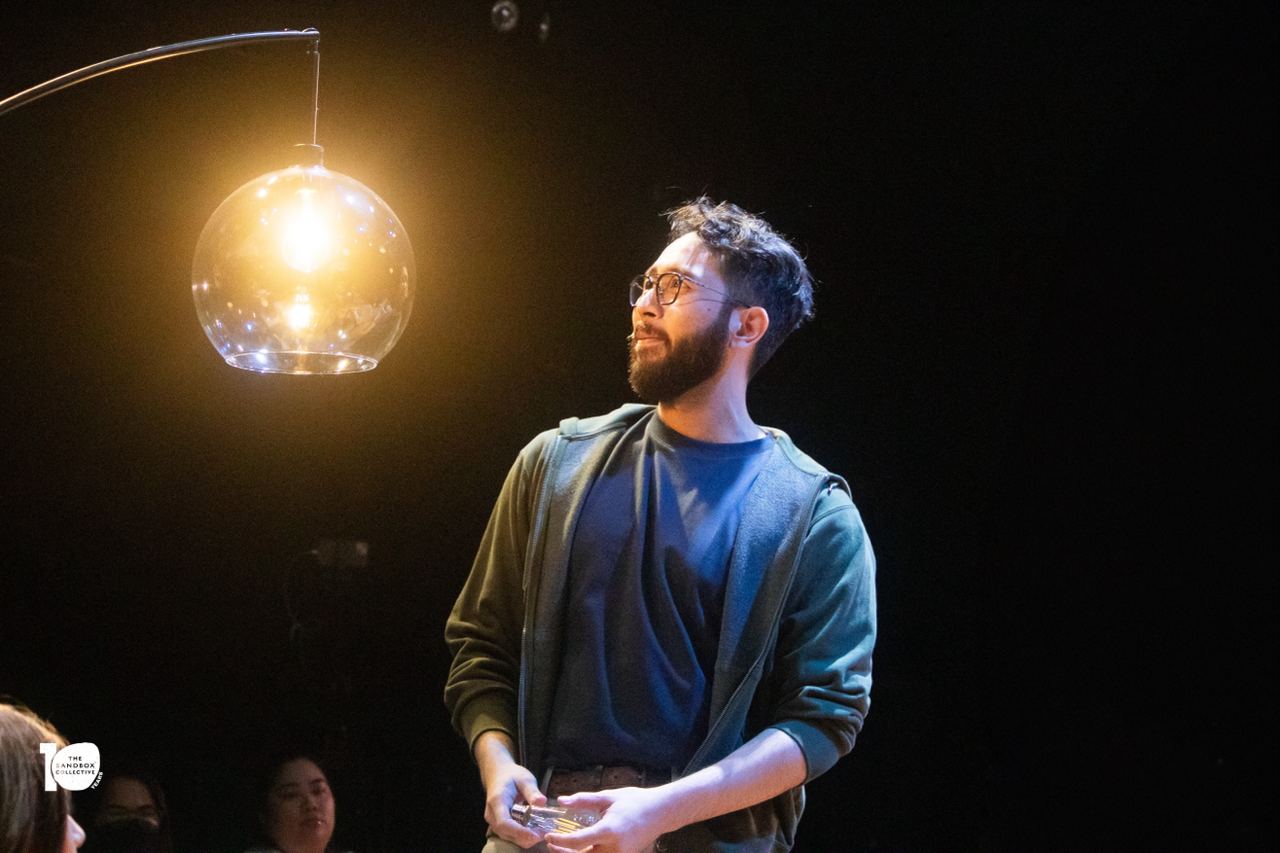
In life, we often find ourselves fighting for what we want—relationships, dreams, and ambitions. But sometimes, no matter how hard we try, we lose. There are moments when you hold on to something with everything you’ve got, only to realize that the only way forward is to let go. As Sugar puts it, “Most things will be okay eventually, but not everything will.”
Reality check: not everything is meant to work out. But walking away doesn’t mean you didn’t give it your all or that you’ve failed. It’s choosing acceptance, like a small, centered room—a space where you allow yourself to move on, protect what matters, and trust that what’s truly meant for you will find its way to you.
Stop worrying about whether you’re fat.

We’ve all been there—endlessly scrolling through social media, comparing yourself to those flawless celebrities and content creators, wondering why your reflection doesn’t match the picture-perfect standards. But here’s the truth: nothing is more dull or disheartening than obsessing over the shape of your stomach.
As the play so boldly says, “Stop worrying about whether you’re fat. You’re not fat. Or rather, you’re sometimes a little bit fat, but who gives a shit?” Feed yourself—physically, mentally, and emotionally. The people who truly deserve your love won’t care about the size of your waist—they’ll fall for the depth of your laughter, the warmth of your heart, and the way you show up in the world. You are so much more than what the scale says, and the sooner you realize that, the more you’ll radiate.
Say ‘thank you.’
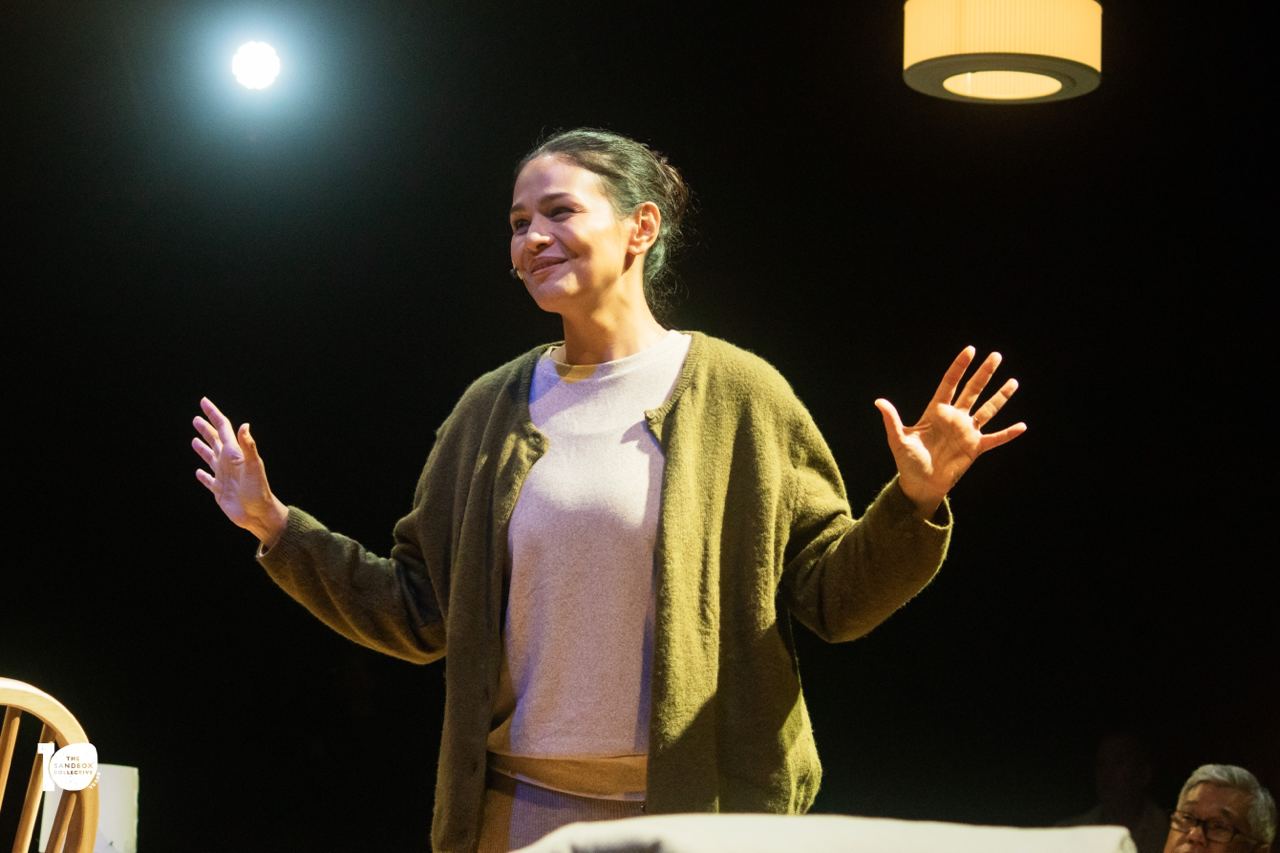
There’s a bittersweet wisdom that comes with time—a lesson we often learn too late. When asked what she would tell her 20-something self now that she’s in her 40s, Sugar reflects on a moment she wishes she could rewrite: “When your mother gives you a warm coat that she saved for months to buy, don’t look at her skeptically after she tells you she thought the coat was perfect for you. Don’t hold it up and say it’s longer than you like your coats to be and too puffy and possibly even too warm. Your mother will be dead by spring. That coat will be the last gift she gave you. You will regret the small thing you didn’t say for the rest of your life.”
We’ve all been there, haven’t we? The times we’ve let frustration cloud our gratitude, failing to say the one simple thing that could’ve meant the world: thank you. We don’t always realize the weight of small moments until they’re gone, and the words left unspoken echo in the silence. So, say thank you—when it’s easy and when it’s hard, because those who care for us should never wonder if we appreciate them.
The seemingly useless days will add up to something.

In your 20s, it can often feel like you’re stuck in the middle of something you can’t quite see—the messy, in-between years where nothing seems to make sense. But as Tiny Beautiful Things reminds us, “The useless days will add up to something.”
It’s in the quiet, the waiting, the wondering—the days that feel like nothing—that you’re actually building yourself. The endless questions about the world and your place in it, from sex to God and even whether you should shave your arms, aren’t wasted time. In the mundane, you’re becoming the person you’re meant to be.
You don’t have a career; you have a life.
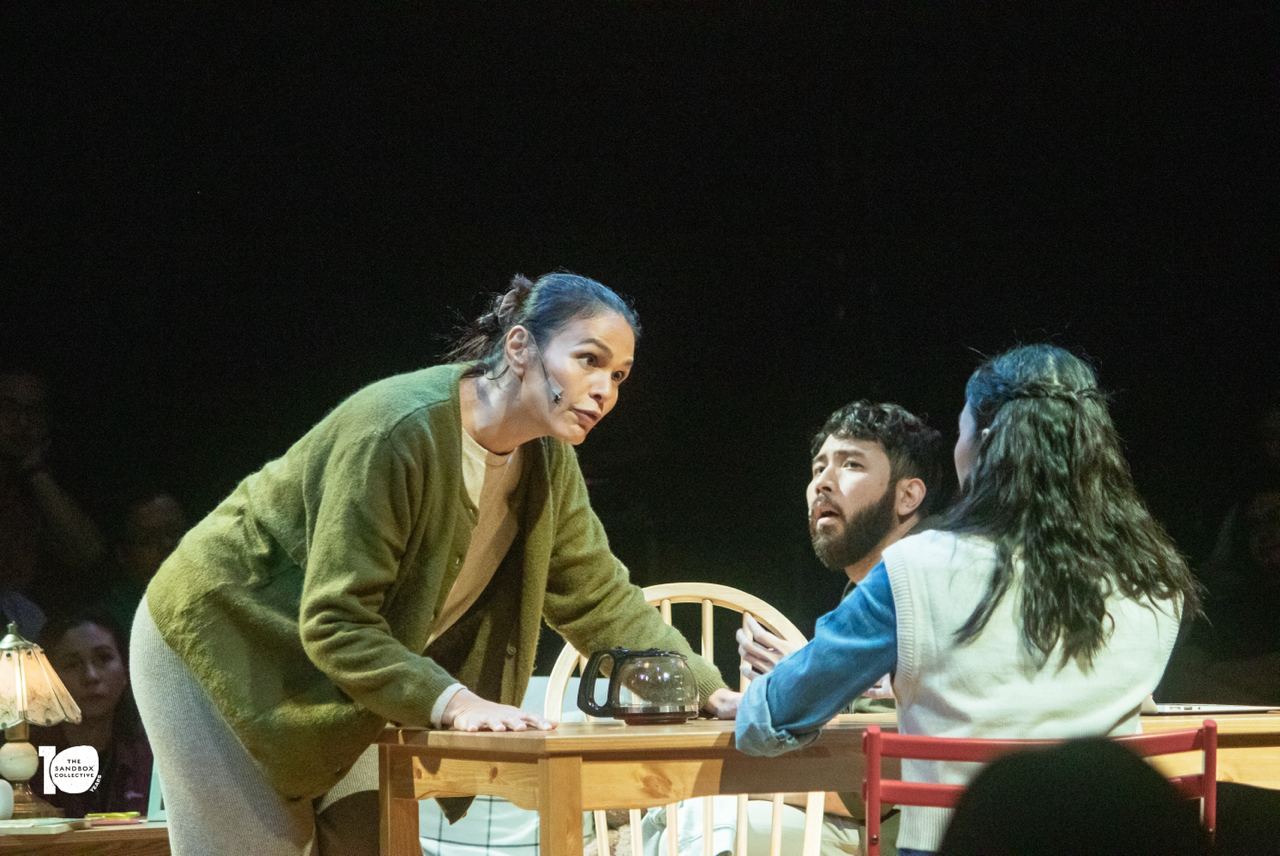
The pressure to constantly be working towards the next promotion or perfecting your resume can make you lose sight of what really matters. Your 20s are meant to be messy, full of moments where you’re figuring out who you are. Yes, drive and ambition have their place, but they shouldn’t consume you.
Life is happening all around you—those spontaneous trips that will drain your bank account, the late-night conversations, and the friendships that turn into family. In the end, it’s not all about building a career; it’s about building a life you’ll look back on with a smile, not a list of achievements.
You shouldn’t have to try to make someone love you.

As you experience the messy, beautiful process of discovering yourself, it’s only human to crave reassurance in the arms of others. Love, in all its forms, becomes something to prove you deserve. You may find yourself bending, stretching, and contorting into someone you’re not, all to earn affection that feels fleeting, like a shadow you can never fully catch. But here’s the truth: love is not something you have to earn, nor is it something you should chase—as cliché as that may sound.
The most genuine love is the kind that flows effortlessly, fits without forcing, and is offered freely without conditions. Contrary to popular belief, the right people will cherish you not for the version of yourself you’ve shaped to please others, but for the authentic self you’ve always been.
You’re stronger than you realize.
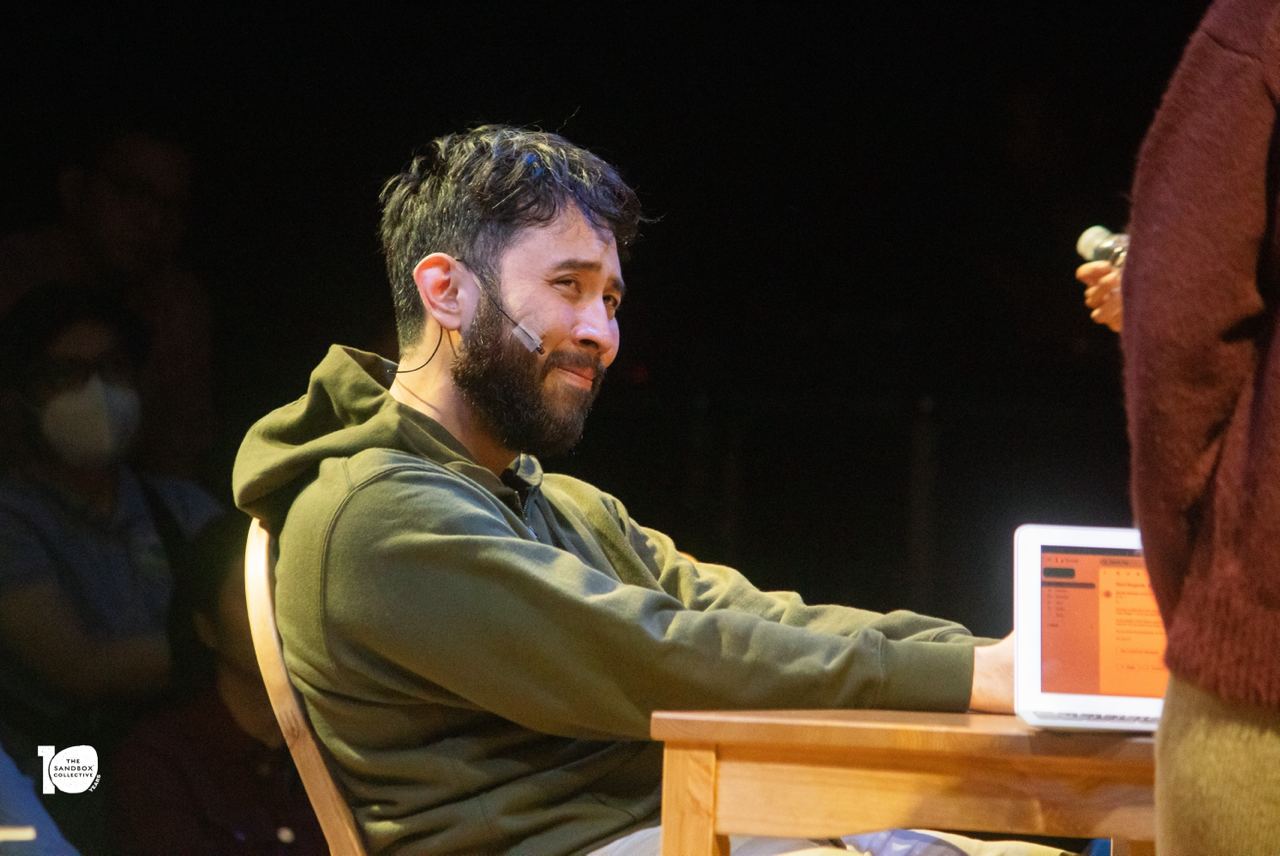
Loss is the toll we pay for love—one that clings to your first heartbreak, your childhood home, or even the dreams you once held close. When it’s gone, it leaves you breathless on days when you’re convinced you can’t take another step, wondering if you’ll ever feel whole again. But here’s the thing: you will.
You’ll rise—even when it feels impossible—because you’re far stronger than you know. It’s in the unassuming resilience, the way you wipe your tears after another sleepless night, the way you keep moving forward even when the world feels unkind. Yes, life will break you—but in the wreckage, it will also reveal that you’re more capable than you ever imagined.
You have the right to tiny, beautiful things.
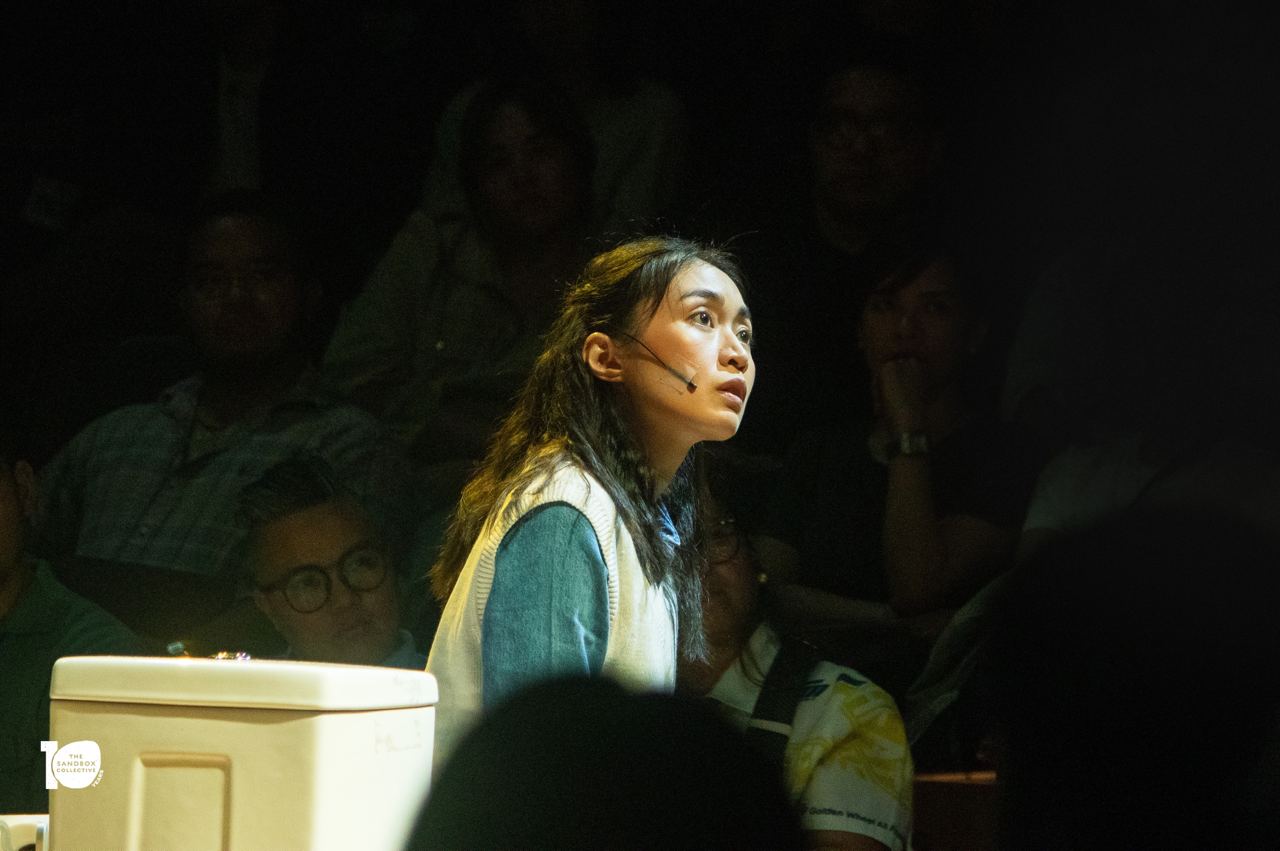
In the depths of your pain, when everything feels broken beyond repair, it’s easy to convince yourself that you no longer deserve the good things—the tiny, beautiful things. “One hot afternoon during the era in which you’ve gotten yourself ridiculously tangled up with heroin,” Sugar recalls, “you will be riding the bus and thinking what a worthless piece of crap you are.” These are isolating thoughts, but the world will find a way to remind you of your worth.
For Sugar, it’s a little girl with two purple balloons who steps onto the bus, and though her innocent offering—one of those balloons—feels like a symbol of happiness you no longer have the right to claim, “You’re wrong. You do.” No matter the mistakes or the hurt, the world still has room for you to receive and to heal. The most important thing you can do is forgive yourself—for the times you failed to protect your heart, for the moments when pain passed through and left its mark. You have the right to embrace the small, beautiful moments that remind you that even in your brokenness, you are worthy.
Continue Reading: 6 Life Lessons We’re Taking To Heart From Inside Out 2



